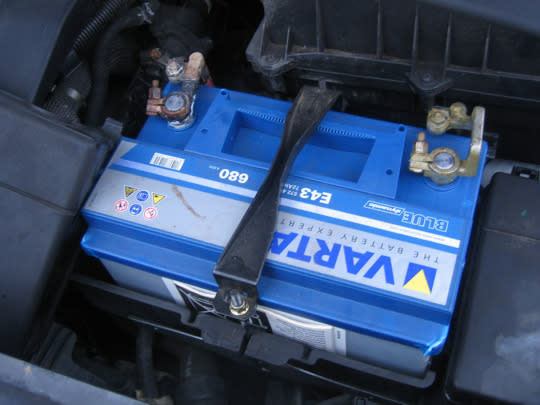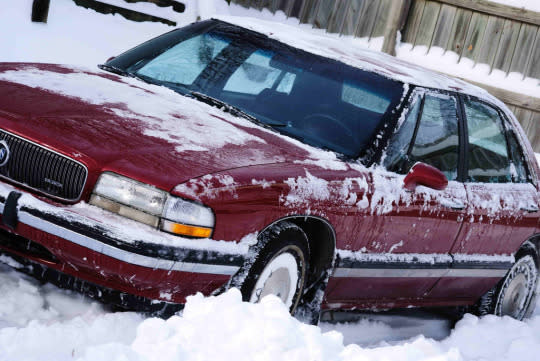Will It Hurt My Battery If I Have The AC On When I Start It? Question Of The Day

Starting a car requires lots of energy from a battery, but can other things draw power at the same time and cause the battery to wear out faster?
Question: Does having your air conditioning on while you start a car engine shorten the battery life?
Answer: In a word, no – as long as your car was made in the mid-1980s or later. To draw an analogy, think about the Crawley family in Downtown Abbey, which always eats dinner before the butlers, footmen, maids and so forth. In this case, your car’s engine is the Crawleys and all the other components are Downton’s help staff.
Batteries in modern-day cars ensure that the engine always eats first, metaphorically speaking. When you start the engine in newer cars, anything that’s operated electrically – from the air conditioner fan to the radio – doesn’t draw power until after the engine is running.

Photo by Mercuryvapour / Flickr
“The maximum amount of output from a battery gets applied directly to starting the car,” says Tom Watson, vice president and technical fellow of powertrain, engineering and product development at Johnson Controls, the world’s largest manufacturer of automotive batteries. “The battery’s primary purpose is twofold. It needs to hold enough cranking performance to start the engine, then have enough reserve capacity so you can let it sit, then be confident that it can do the job the next time you start your car.”
The battery is arguably one of a car’s most important components, especially so because cars keep getting more and more complex. Some now have more than 40 on-board computers, said Watson. “The battery keeps all those computers functioning,” he said. “So it’s important that people pay attention to health of their battery.”
A typical car battery will last four to five years. One of the most important things you can do to maximize life expectancy is keep it fully charged. Why? Every time you start you car, you draw energy from the battery. And after-market accessories, such as remote starter systems, can double or triple the load on a battery, even when the car isn’t running. So in order to replenish that expended energy, you should drive your car at least once a week for a minimum of five minutes, Watson said.
“And if you’re going to store a car for more than 30 days, disconnect the battery, or all the car’s computers will keep using electricity until there’s nothing left in the battery,” Watson explains. “If you drain a battery (of its power) repeatedly, it accelerates the degradation of the battery.”

Climate affects battery life, too.
“Batteries are like people,” Watson said. “They don’t like to work when it gets cold and get stressed when it’s hot.”
Most car batteries work effectively to roughly 20 degrees below zero. In temperatures below that, the electrolyte in the battery – which contains water – tends to slow down the passage of electrons and ions between the anode and the cathode, which is what produces electric current.
“Plus the engine is harder to crank because the oil gets thicker,” Watson said. High temperatures, on the other hand, accelerate battery aging by breaking down materials.
If you’re curious about your battery’s health, Watson says that many auto parts stores will check your battery’s status for free – and even install a new one at no charge. That’s service even the staff at Downton Abbey might find tough to beat.
We’re scouring the Internet to uncover interesting questions that people have posted looking for advice from the unwashed masses. We will contact experts to give you well-researched, professional advice. You can also submit questions to autos_qotd@yahoo.com.
